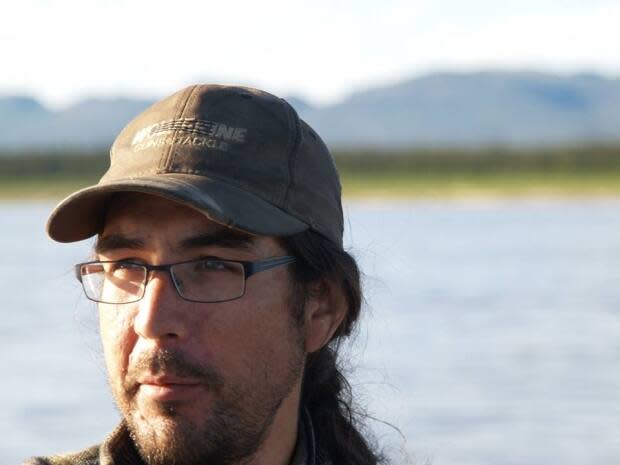Northern activists react to Biden's plans to cancel Keystone XL pipeline permit
President-elect Joe Biden has indicated that he plans to cancel the permit for the Keystone XL pipeline on his first day in office and it's welcome news to some activists in Canada's North, who have been part of the fight against the project for years.
The pipeline is meant to expand critical oil exports for Canada, which has the third-largest oil reserves in the world. If the permit for the project is rescinded, cross-border construction would be halted. The on-again, off-again project would have carried more than 800,000 barrels of Alberta oil a day to refineries in Texas.
Bill Erasmus protested and lobbied against that project when he was the Dene National Chief.
"It's huge," Erasmus said of Biden's plans.
"Our people have been concerned about pipelines being built south of us for a long time. It's scientifically known that our waters are being contaminated from the tailings ponds."
He says oil development generally has negative effects that have impacts all the way in the northernmost of the country.
"Our people['s land] north of the tarsands are being contaminated," he said. "This goes through the water system all the way to the circumpolar Arctic."
Erasmus says he thinks the world is moving away from oil and gas and, from an economic perspective, the jobs are short-term and not worth the environmental damage the project could cause.
"I really think those short-term jobs are not worth polluting the Arctic and affecting our people in a negative way."
Erasmus also says it's time for the Alberta and federal governments, along with industry, to invest in the clean-up of the tailings ponds — many of which he says are lake-sized and leak toxic substances.

Halting of project 'vindication'
N.W.T. climate activist Daniel T'seleie is also counting the announcement as a positive step.
"Years ago — and even recently — I would have been really surprised by this type of action," T'seleie said.
"I think it's an indication that the world, and the major political and economic forces in the world, are really accepting the fact that we have to transition away from fossil fuels if we're actually going to stop climate change."
T'seleie was part of the protests in North Dakota, and was even arrested. He says Biden's apparent move is a "vindication" of that activism.
"I made a lot of connections with people from that land … And I saw how hard they were working to try and protect their land and specifically protect their water," T'seleie said.
"I think, if I had to guess, that would be one of the considerations of the Biden administration, is that if they moved ahead with the Keystone XL, they would get another Standing Rock."
He says he's "cautiously optimistic" that the president-elect will follow through with the executive order to not go ahead with the Keystone XL pipeline.
"I think that is largely due to the actions of Indigenous people and non-Indigenous people on the southern side of the border who have really been fighting against this pipeline ... and have been making it very clear that this pipeline is not going to get built without their consent," he said.
"I think the Biden administration realizes that that is a very real and significant barrier to progress on construction."
Canada should shift away from fossil fuels: T'seleie
Meanwhile, Alberta's premier has said the province has a strong legal basis for seeking damages if the Keystone XL pipeline expansion is killed. Canada's federal government is also pushing for the project to go forward.
T'seleie says the federal government's climate policy doesn't "accept the reality that we need to transition off of fossil fuels."
"If we continue to allow extraction to ramp up, we're not going to stop climate change," he said.
"Canada's reaction to the cancellation of the permit for Keystone XL, I think it's really showing their cards, and their cards are that they're going to continue to try to do everything under the sun."
Halting the project south of Canada's border is a good step, however, T'seleie said.
"Over just the last few years, we're seeing some of these significant fossil fuel mega infrastructure projects actually stop," T'seleie said. "And I think that's significant."

